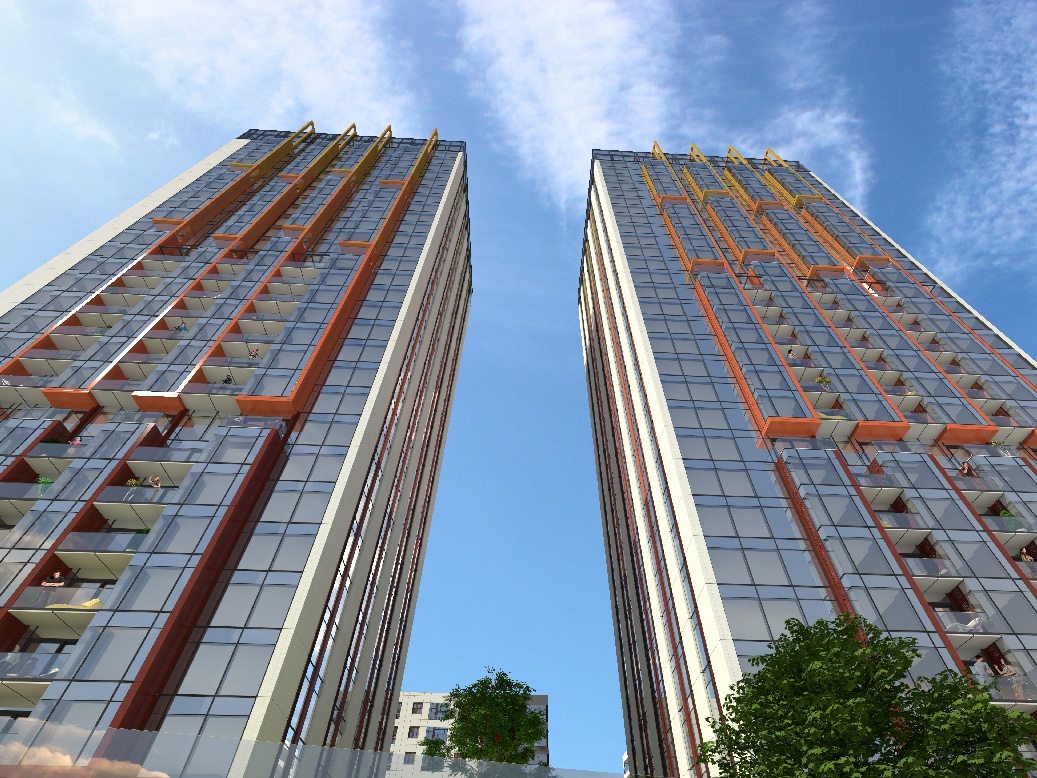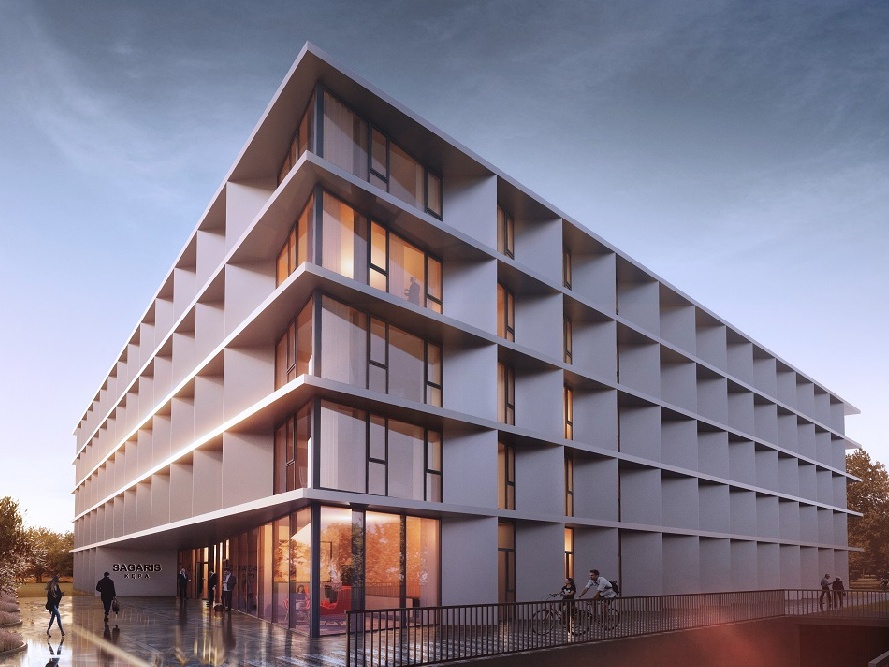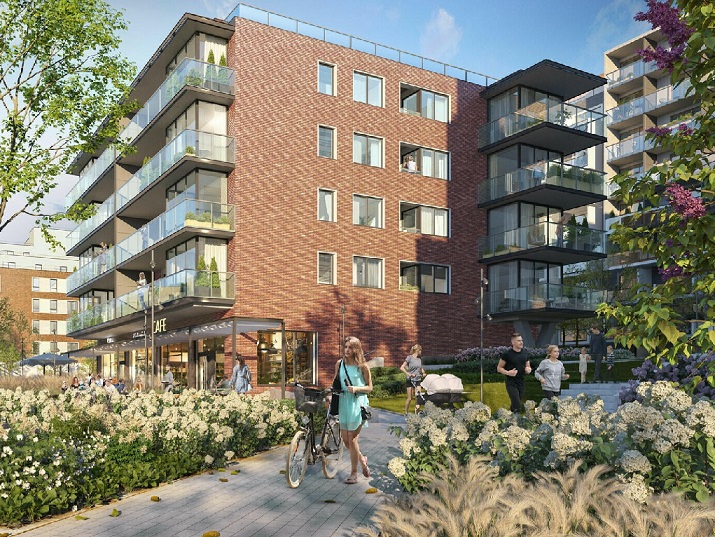PROPERTIES & RESIDENCE
Czechia
via Company Formation
via Owning Real Estate

Advantages of obtaining a property in the Czech Republic
The Czech Republic offers a relatively easy process for acquiring residence permits, which can lead to citizenship in just 5 years. The country has experienced solid GDP growth, with a current GDP per capita of 22,843 EUR. Interest rates and inflation are low, while growth rates are high, and unemployment rates remain at very low levels.
While properties in Prague are considered to be heavily overvalued, they still represent an interesting investment direction, especially given that Czechia is a developed economy with a stable property market. However, yields are not particularly high, with a 3-4% yield being possible.
In addition to its stable economy, Czechia is known for its strong work ethic and numerous opportunities. Moreover, Prague is strategically located in Europe, with major cities such as Berlin, Vienna, and Wroclaw all within a 350 km radius. The country's population is also growing, with an expected increase in the coming years.
Property purchase costs in the Czech Republic are relatively low, with the 4% real estate transfer tax having been abolished. Real estate prices outside the city center range from 3,500 to 4,500 EUR, while prices in the city center or business district are considerably higher.
Residence permits on the grounds of owning real estate
There are no restrictions on foreign buyers in the real estate markets. You can set up a company dealing with real estate or any other line of business. Once you are there you can simply increase your assets by purchasing a real estate.
Residence permits on the grounds of company formation
If you're looking to move to a new country and establish a business, the Czech Republic offers a relatively quick and straightforward process. To start, you'll need to prove that you have around 15,000 EUR in your bank account and can support yourself financially. Additionally, you'll need to participate in the national healthcare scheme and provide proof of a place to stay.
Once you've met these requirements, you can apply for a residence permit for yourself and any dependents. The application process typically takes between 3-6 months and is generally straightforward.
Overall, setting up a business in the Czech Republic is a great way to establish yourself in the country and enjoy all it has to offer. With a relatively low cost of living, a stable economy, and a supportive business environment, it's no wonder that many people are choosing to call the Czech Republic home.
Taxes & Rental income tax
One of the benefits of investing in property in the Czech Republic is the relatively low Rental Income Tax. This tax ranges from 15% to 23%, and there is also a standard deduction of 30% for expenses, including Capital Gains Tax (CGT).
When it comes to CGT, it is added to your gross income in the year of the sale. However, if you keep the property for at least 10 years after purchase, you are exempt from paying CGT.
It's worth noting that the general income tax in the Czech Republic is 15%, which is relatively low compared to other European countries. Additionally, there is no wealth tax, which can be an added benefit for property investors. Overall, the tax system in the Czech Republic is relatively straightforward and can be quite favorable for those looking to invest in property.
Other residence types in Czechia
While there are many types of residence permits available in the Czech Republic, as an investor, you may be primarily interested in the company formation model. This model is often the most straightforward and quickest way to obtain a residence permit.
By setting up a company in the Czech Republic, you can not only obtain a residence permit for yourself and any dependents but also take advantage of the country's favorable tax and business environment. Additionally, the process for setting up a company in the Czech Republic is relatively simple, with many resources available to help guide you through the process.
Overall, if you're looking to establish a long-term presence in the Czech Republic and take advantage of all the benefits it has to offer, setting up a company may be the best route to take. With a supportive business environment and a range of resources available to help you navigate the process, it's no wonder that more and more investors are turning to the Czech Republic as a destination of choice.
Which residence permits offer a path to permanent residency and citizenship?
There is a variety of residence permit types leading to acquiring the passport. It guarantees access to the Schengen Zone, US and Canada.
Restrictions & Challenges
While the Czech Republic offers many advantages for property investors, there are also some potential drawbacks to consider. One of these is the relatively high property prices, particularly in certain areas like Prague.
Additionally, the property market in the Czech Republic is relatively mature, and it's unlikely that tourism will continue to grow at the same rate as in recent years. This means that investors should be prepared for potentially slower growth in the future.
Another potential issue is the shortage of available development sites. While there are still opportunities for investment, particularly in more outlying areas, investors should be prepared to do their due diligence and be patient when looking for the right opportunities.
Despite these challenges, the Czech Republic remains an attractive destination for property investors, thanks to its stable economy, favorable tax environment, and strategic location within Europe. By doing your research and working with trusted local partners, you can take advantage of all the opportunities that the Czech Republic has to offer.
Czechia
The Czech Republic is widely regarded as one of the most developed countries in Central and Eastern Europe, and its success can be seen in the high levels of foreign investment it attracts. Many businesses operating in the country are incorporated with foreign capital, and investment is flourishing in sectors such as real estate, strategic services, manufacturing, tourism, and more.
There are several factors that make the Czech Republic an attractive destination for foreign investment. For one, the country boasts a highly skilled workforce and a favorable business environment, with a stable political system and a well-developed infrastructure. Additionally, the government offers various incentives to foreign investors, including tax breaks and subsidies.
The real estate sector is particularly popular among foreign investors, thanks to the high demand for housing and commercial space in cities like Prague. The country's strategic location within Europe also makes it an attractive destination for businesses looking to expand their operations and tap into new markets.
Overall, the Czech Republic offers a range of advantages for foreign investors, and its continued economic growth and stability make it an appealing destination for those looking to invest in Central and Eastern Europe.
Current OpportunitiesGrowth And Business Advantages
The Czech Republic, like many other economies around the world, suffered a significant setback due to the COVID-19 pandemic. The country's sustained growth up to 2020 was disrupted, leading to a decline in domestic demand, tax revenues, and exports. As a result, the Czech economy contracted by a projected 5.6% in 2020, although this was a slower decline than the EU average.
However, the country is expected to experience positive GDP growth in 2021 and 2022, although it is not expected to return to pre-COVID levels until 2023. One of the most affected sectors of the economy was the automotive industry, which is the largest sector of exports in the country. The industry accounts for a significant portion of the GDP and labor force, with Skoda being the leading producer.
Services contribute significantly to the Czech GDP and employ a considerable portion of the active population. The tourism sector, in particular, is a significant contributor to employment and economic growth, with Prague being a premier tourist destination in Europe.
Foreign investors in the Czech Republic can benefit from investment incentives, which are available for manufacturing, technology centers, and business support services centers. Additionally, there are opportunities for investment in various sectors, including aerospace, automotive, cleantech and energy, electronics, software and ICT, and life sciences.
Overall, the Czech Republic remains an attractive destination for foreign investment, with its strategic location in Central Europe and a skilled labor force. Despite the setback caused by the pandemic, the country is expected to rebound and continue its trend of sustained economic growth.
Real Estate Trends
The Czech Republic has long been known for having the most expensive residential property market in Central Europe. According to data from Deloitte, the average price of a new apartment on the local market was EUR 2,525 per square meter in 2018, and in Prague, prices on the primary market have soared to as high as EUR 3,200 per square meter. This is in stark contrast to neighboring Poland and Hungary, where average prices are around EUR 1,370 and EUR 1,323 per square meter, respectively.
Over the past few years, transaction prices for flats in the Czech Republic have continued to rise, increasing by an average of 9.8% in 2018 and 8.9% in 2019. As a result, some Czech residents have started to look beyond their borders for more affordable housing options. For example, residents in the northwest of the country have shown interest in the German housing market, where the average price of a second-hand apartment in cities like Chemnitz (with approximately 250,000 inhabitants) hovers around EUR 1,000 per square meter.
Despite the high prices, the Czech property market remains attractive to many investors, thanks to the country's stable economy, favorable tax environment, and strategic location within Europe. However, investors should be prepared to do their due diligence and carefully consider their options when looking to invest in this market.

Poland > Wroclaw — Sky Tower 48F
Wroclaw
Poland > Warsaw — Moxo House
Warsaw
Poland > Giant Mountains — Passive Income on Rental
Szklarska Poreba






